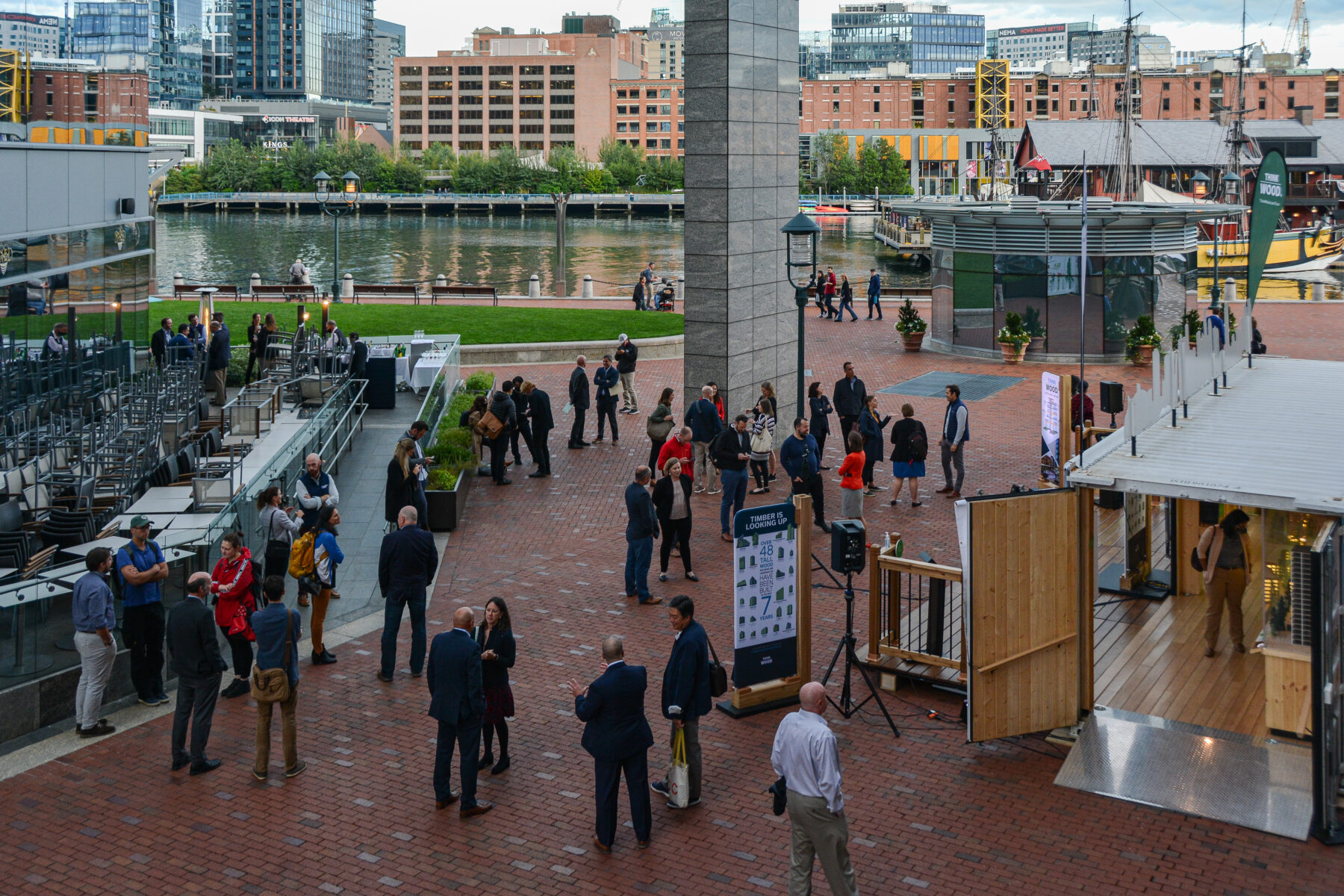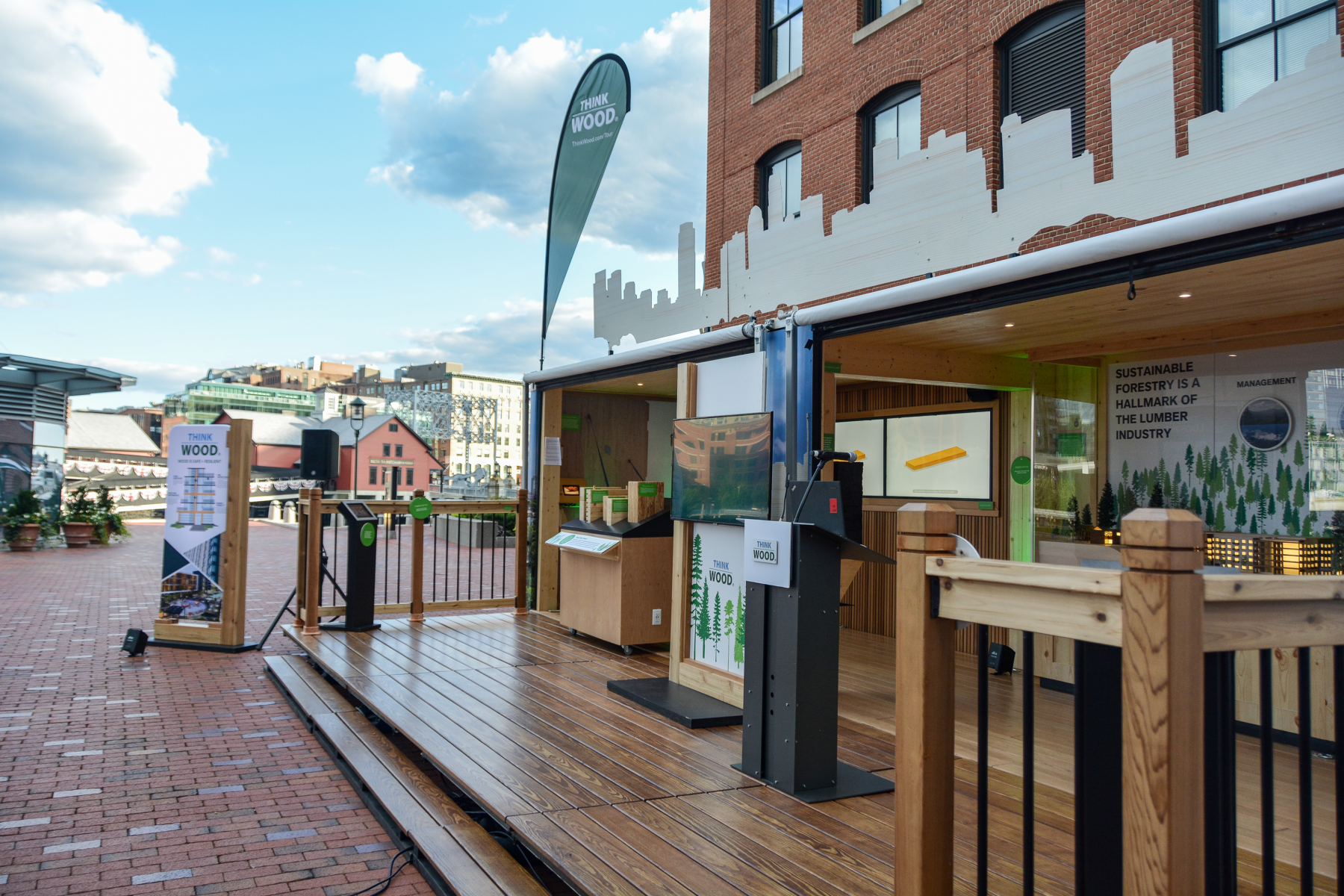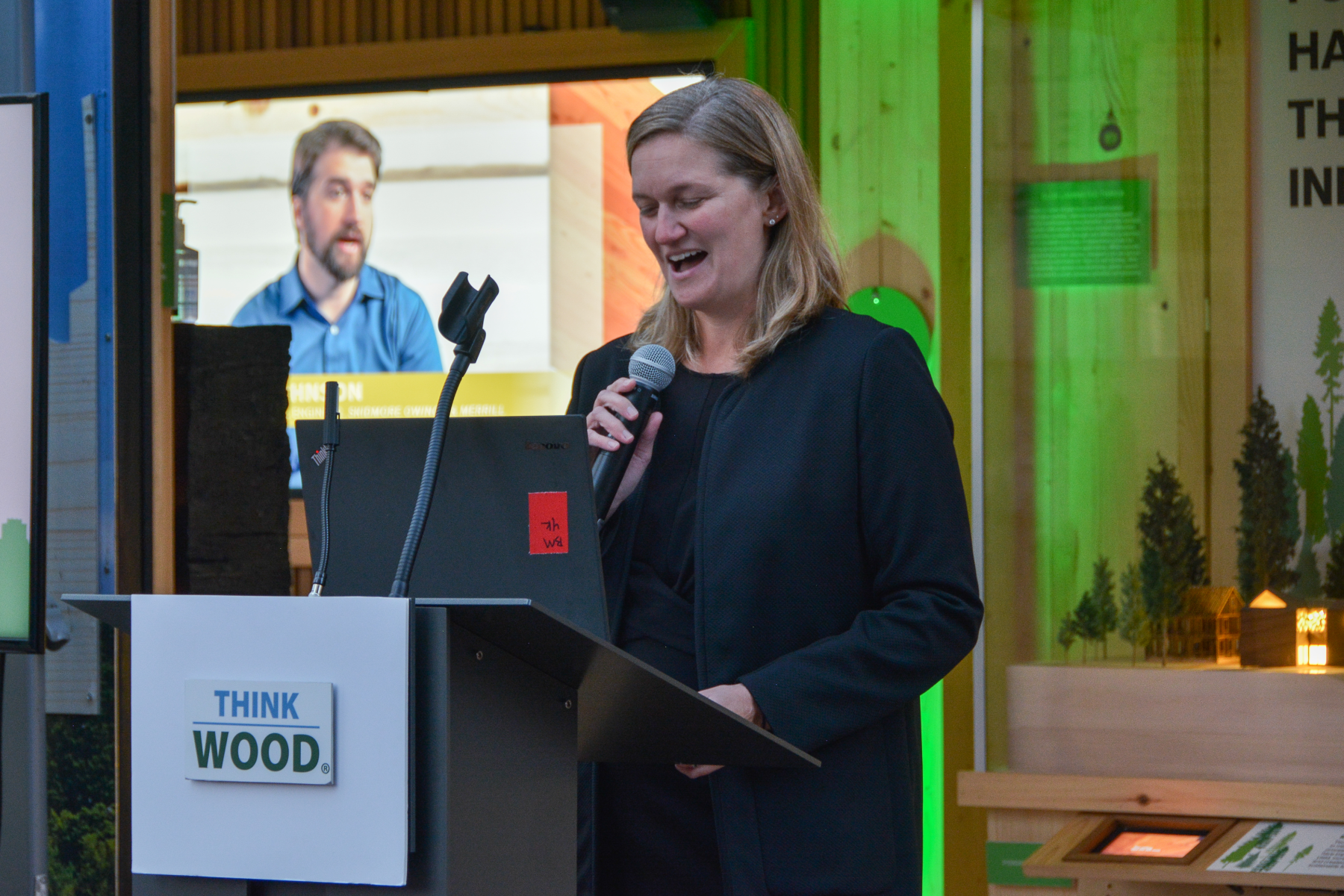Mass Timber Accelerator Kicks Off With Launch Event

In partnership with the City of Boston and the Boston Planning & Development Agency (BPDA), the BSA hosted the Boston Mass Timber Accelerator Launch event on Wednesday, September 29.
The first in-person event in over 18 months at BSA Space served as a moment to celebrate our achievements around carbon reduction and to recognize the urgency of the work ahead. With the Think Wood Mobile Tour as a backdrop, speakers brought home the importance of a mass timber accelerator in the current moment.
Boston takes pride in its position as a leader in climate action and is committed to using government influence to create change. The City Council recently passed the Building Emissions Reduction and Disclosure Ordinance (BERDO) 2.0 to address operational carbon emissions. Within the next month, Boston will have a Coastal Flood Resilience Zoning Overlay to protect its residents and buildings from rising seas and increased storm surge. After that, the City will conclude a Zero Net Carbon Building Zoning Initiative that will recommend new carbon emission and green building standards for new construction. With 23 percent of annual global carbon emissions coming from construction and building materials, it's clear that more needs to be done to account for the embodied carbon that is already emitted before a building opens.
The Boston Mass Timber Accelerator aims to position mass timber practices as a key element in creating a net zero carbon economy throughout the city. Through this program, up to 10 local development projects will be awarded $25,000 grants to undertake feasibility studies for mass timber construction. Each team will also receive technical assistance from WoodWorks, a nonprofit that offers free project support to enable teams to create wood buildings throughout the US.

One of the evening’s keynote speakers, Tom Chung FAIA (LEED AP, BD+C Principal, Leers Weinzapfel Associates), noted that the development of digital fabrication technology has met the urgent need to cut carbon. Because of these advances, mass timber construction can use smaller, higher-quality pieces of wood instead of only larger, mature trees. While manufacturing concrete and steel is a carbon-intensive process, carbon stays in wood as long as it stays wood, whether it’s in a forest or a building.
Building with wood has clear climate benefits and can also boost local economies and create beautiful buildings. To help make the case for mass timber construction, keynote speaker Nicole St. Claire Knobloch (Principal, Olifant, LLC) brought in a holistic perspective, intersecting design and regional economic development. Her speech highlighted the fact that we can now look to local forests to harvest mass timber and to local factories for manufacturing. Although the US once employed over 500,000 people in coal and iron-ore rich regions to provide steel for buildings, there are currently about 1.5 billion acres of public and private working forests, and only about 8 million acres per year are harvested and replanted.

Mass timber construction has not yet been widely adopted, but the City
of Boston aims to increase knowledge and awareness of mass timber, identify new
opportunities to build with this material, and accelerate its use in a variety of
building types through this accelerator. The launch event marked the
official opening of the grant application period through November 19,
2021. Those interested can learn more and apply on the BPDA website and attend the information session planned for noon on October 19.
View all photos from the event on Facebook. Plus, watch a video of the launch event, see mass timber case studies, and view resources and further reading on our mass timber accelerator webpage!
Support for the Boston Mass Timber Accelerator comes from USDA Forest Service, WoodWorks, Think Wood, Softwood Lumber Board, and the ClimateWorks Foundation.

